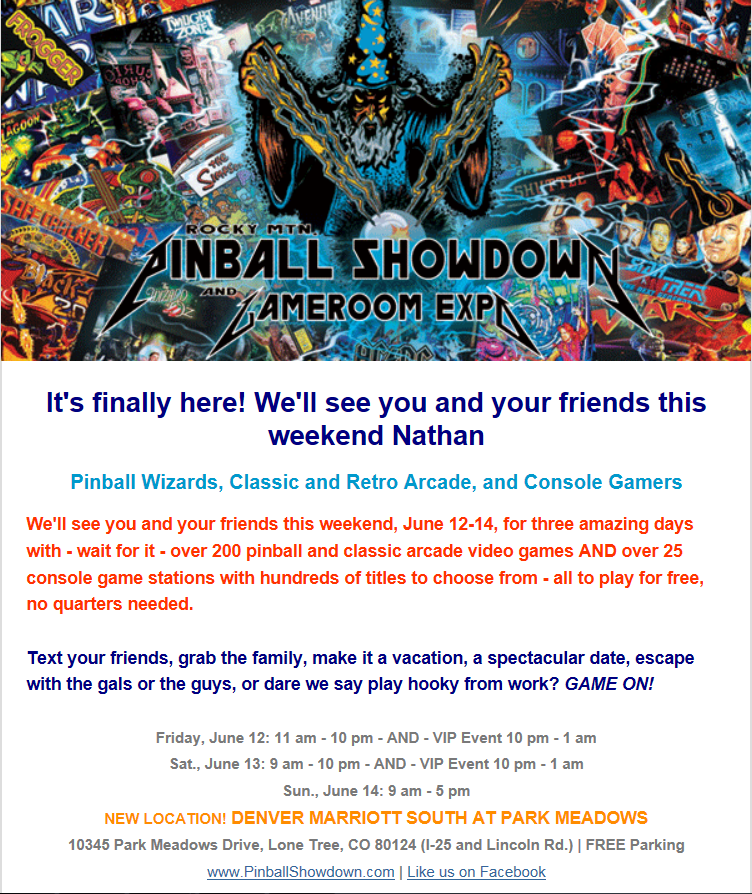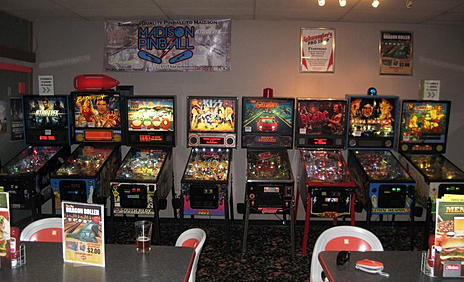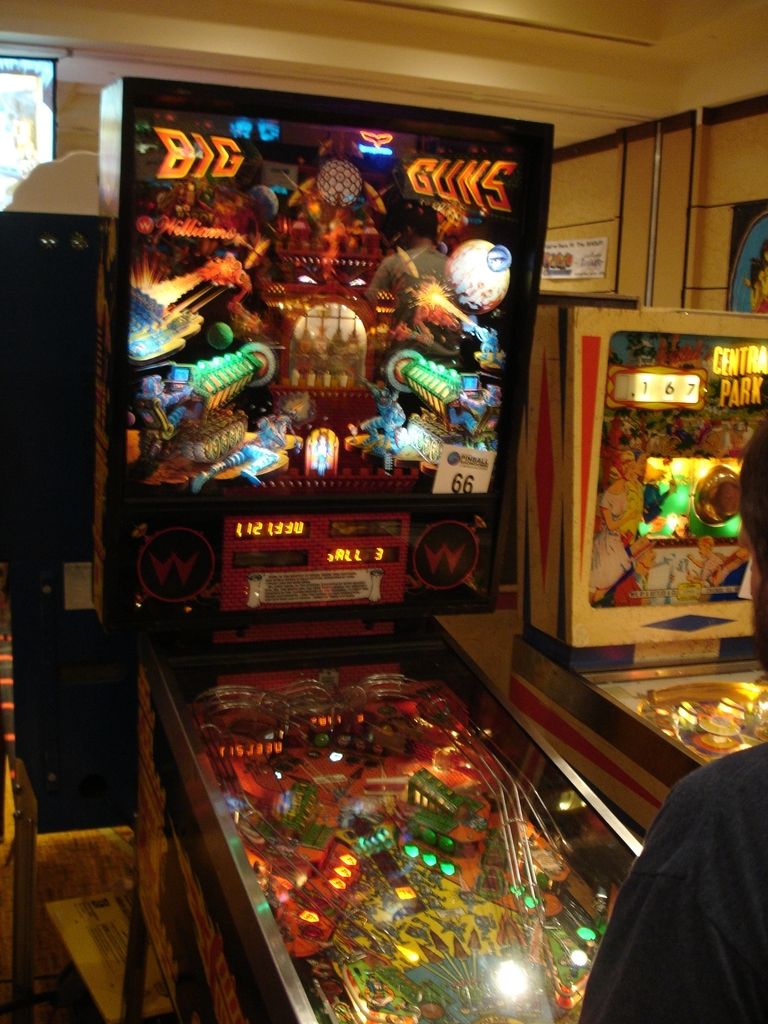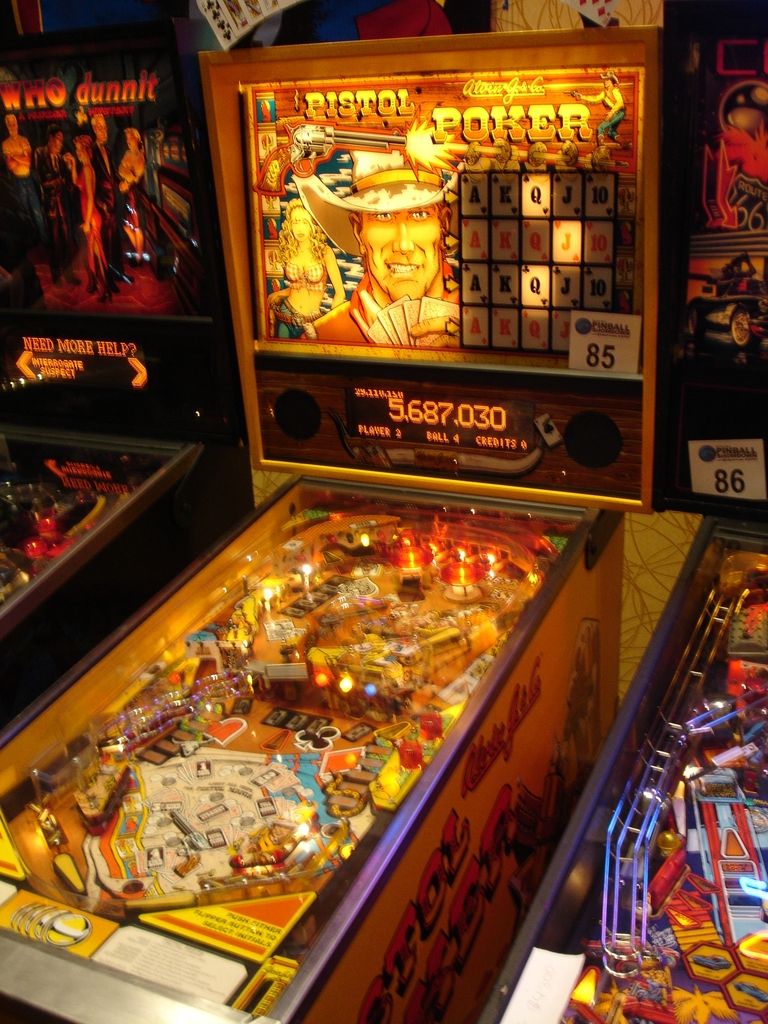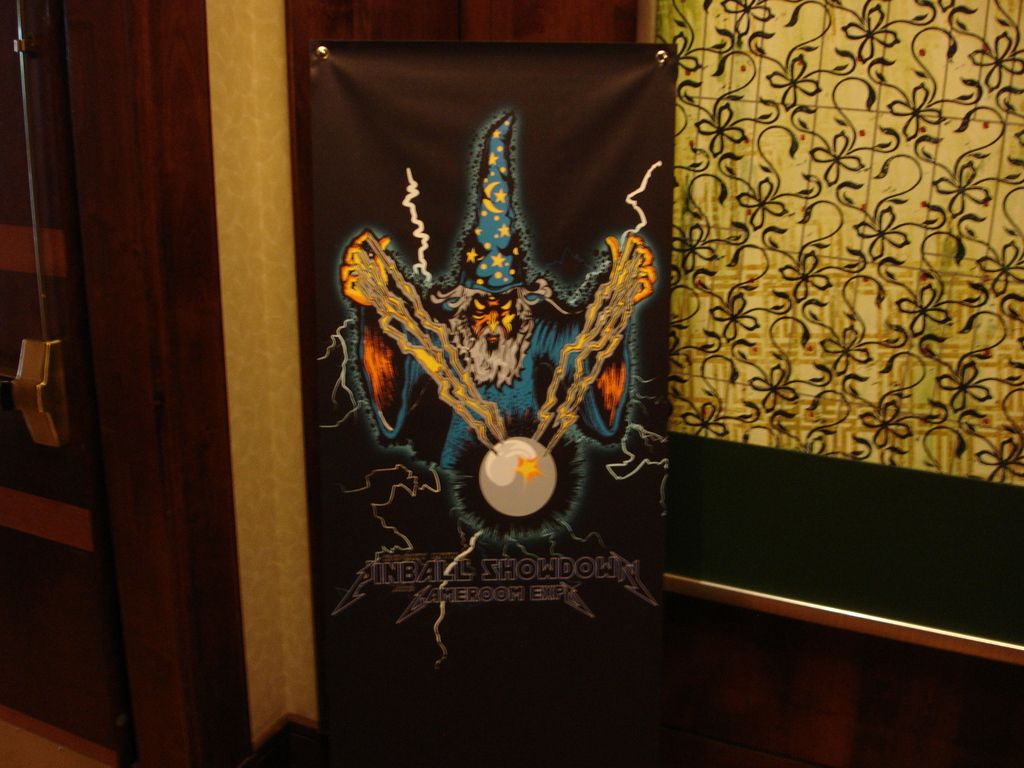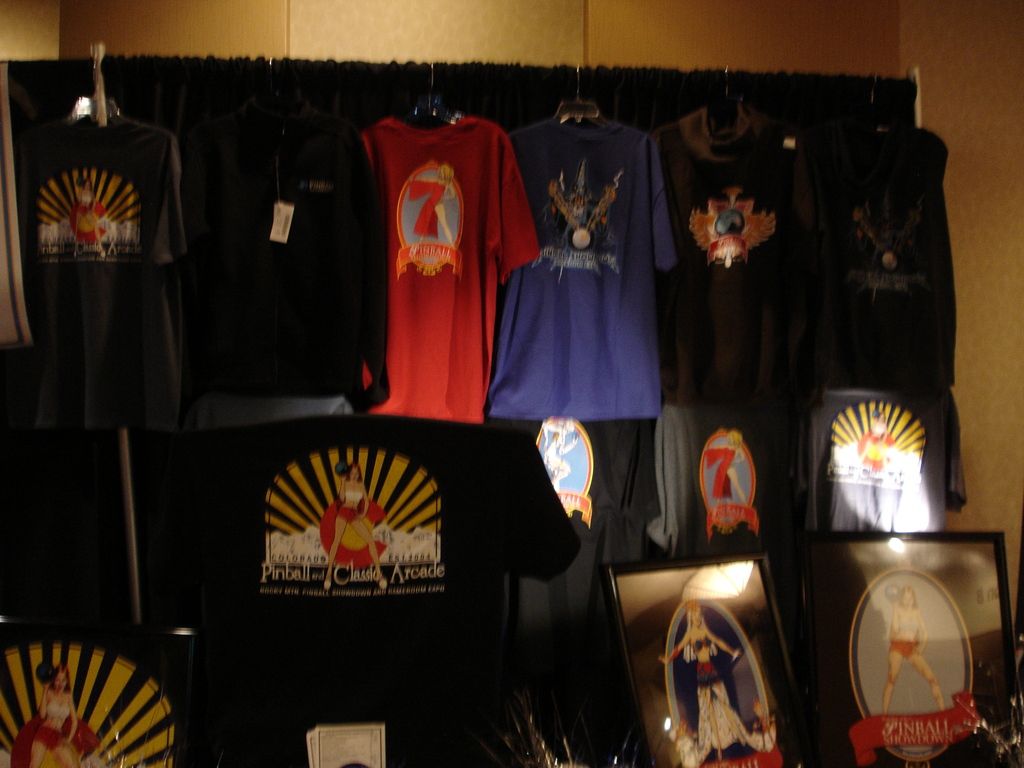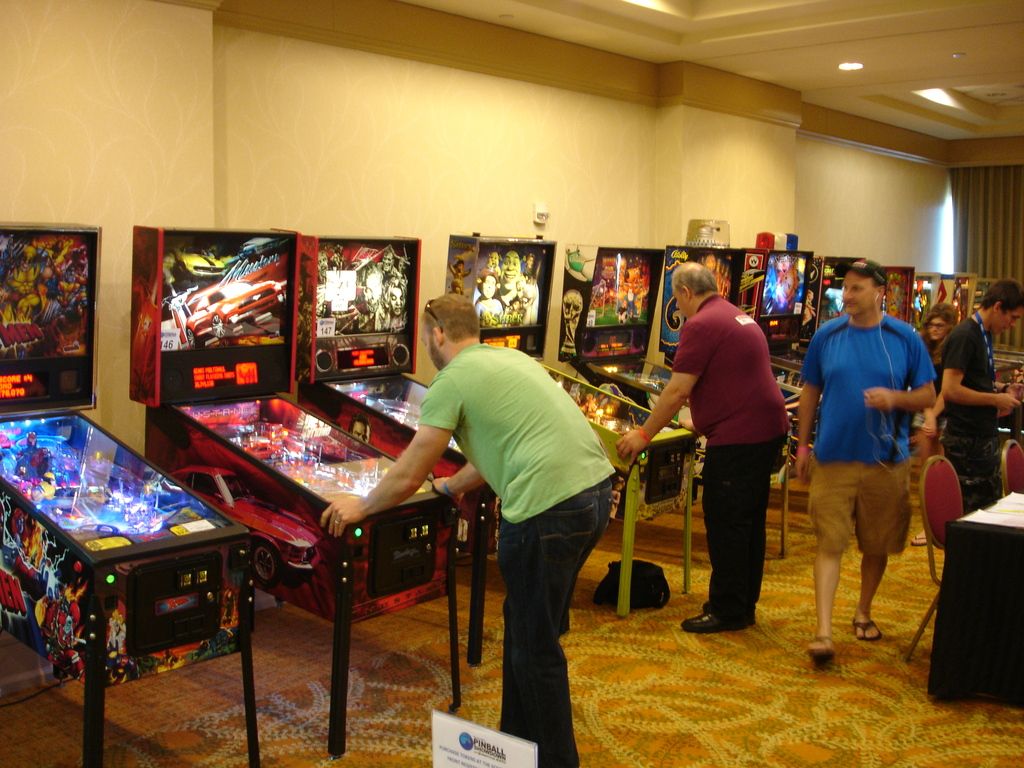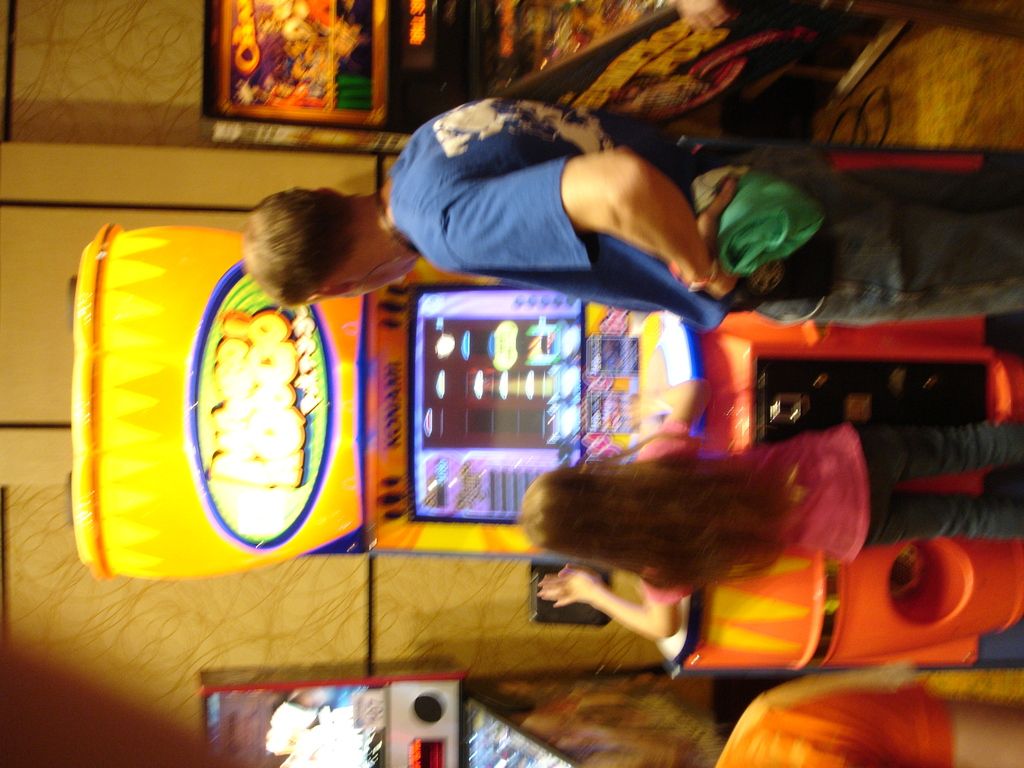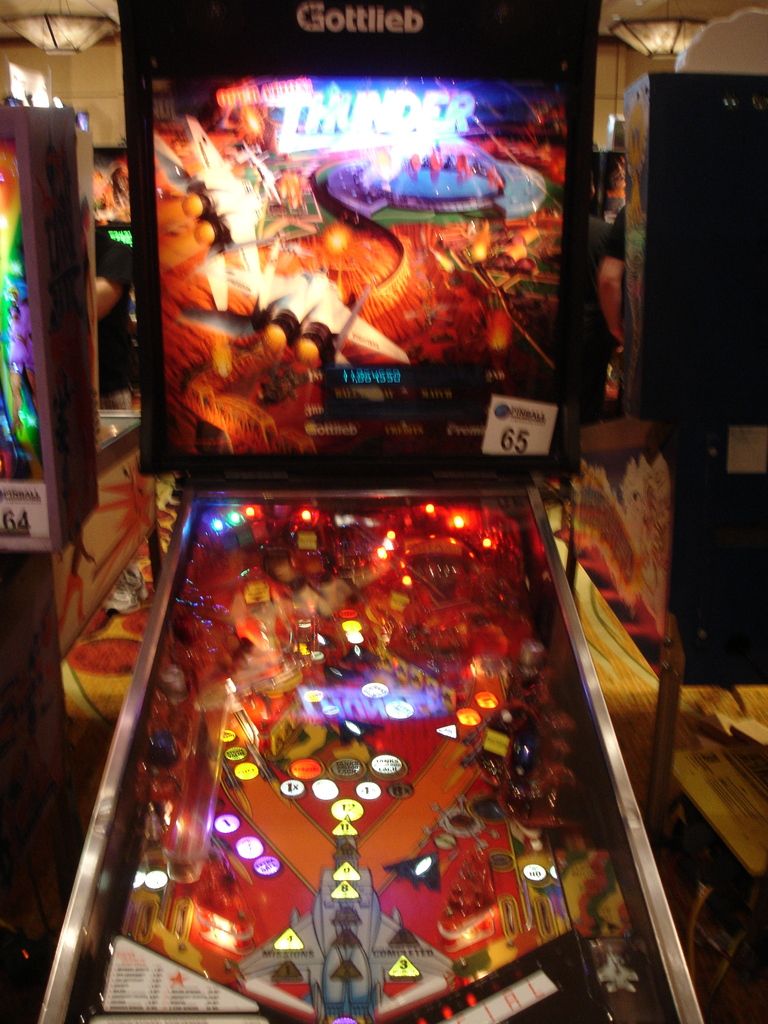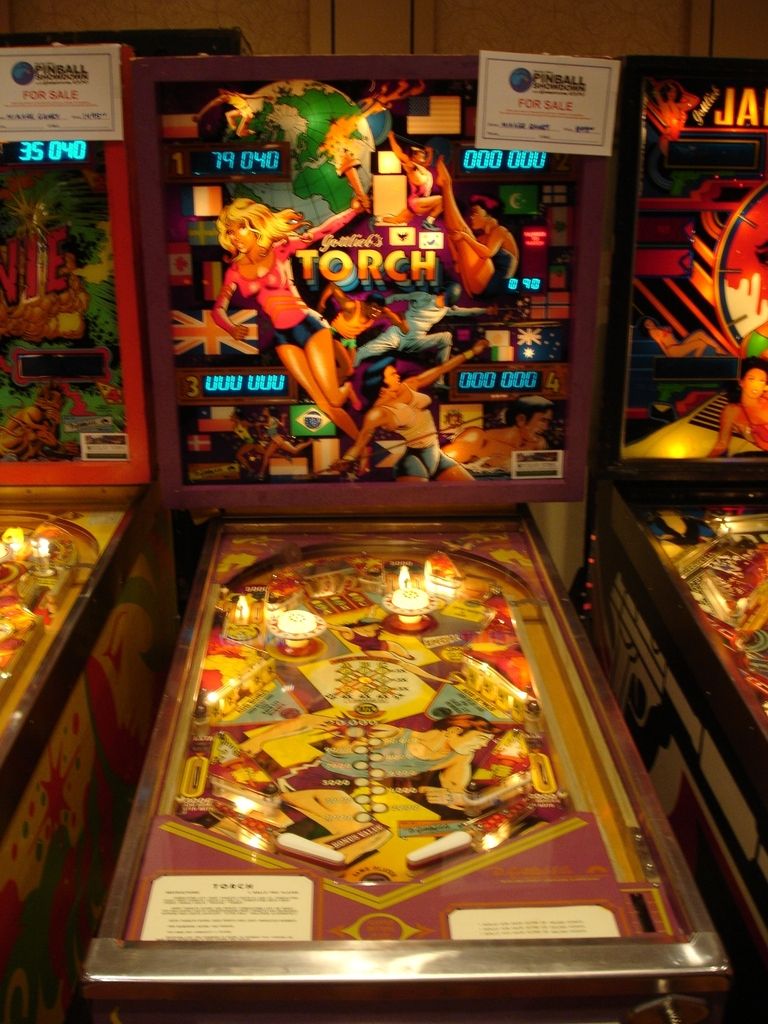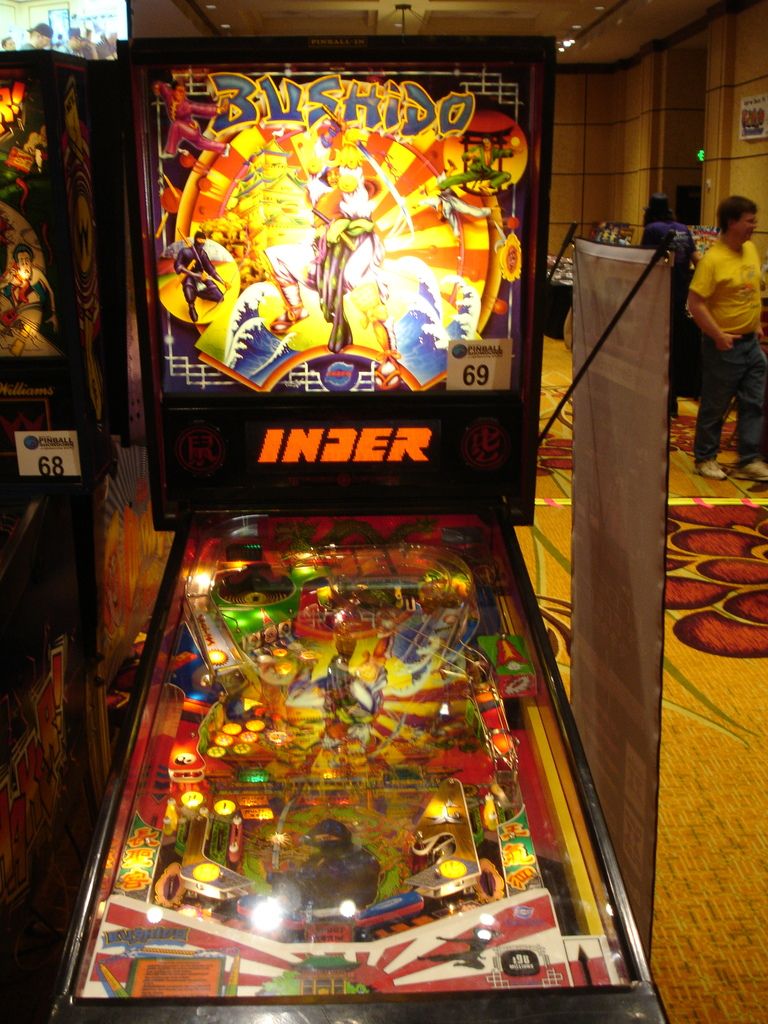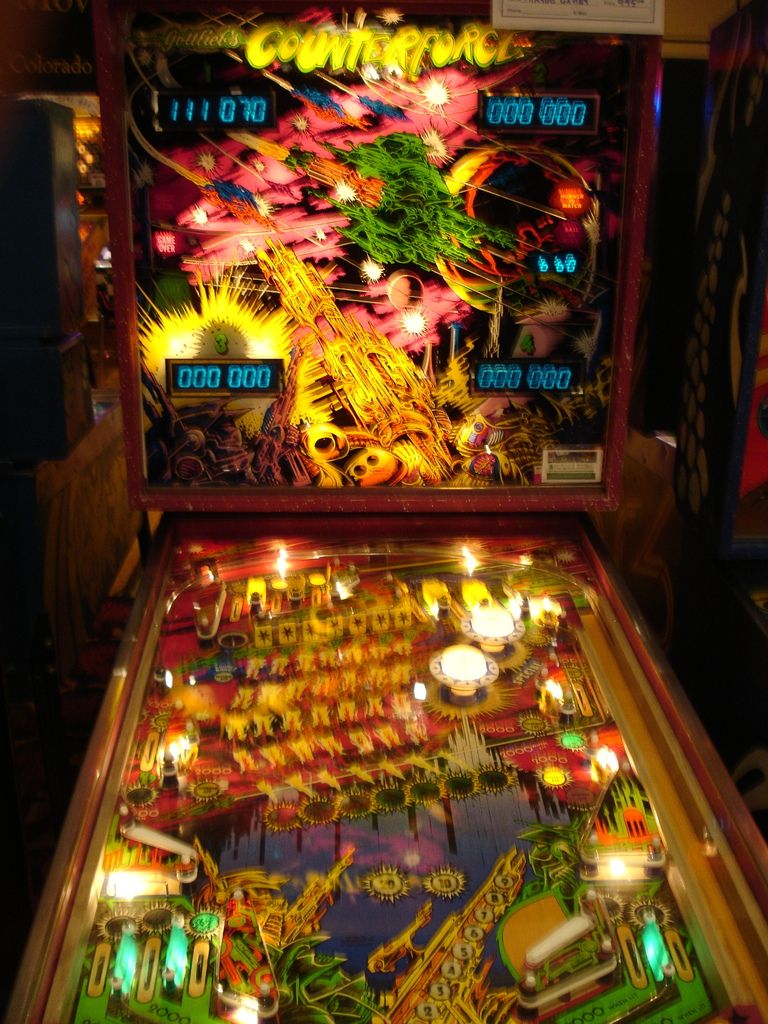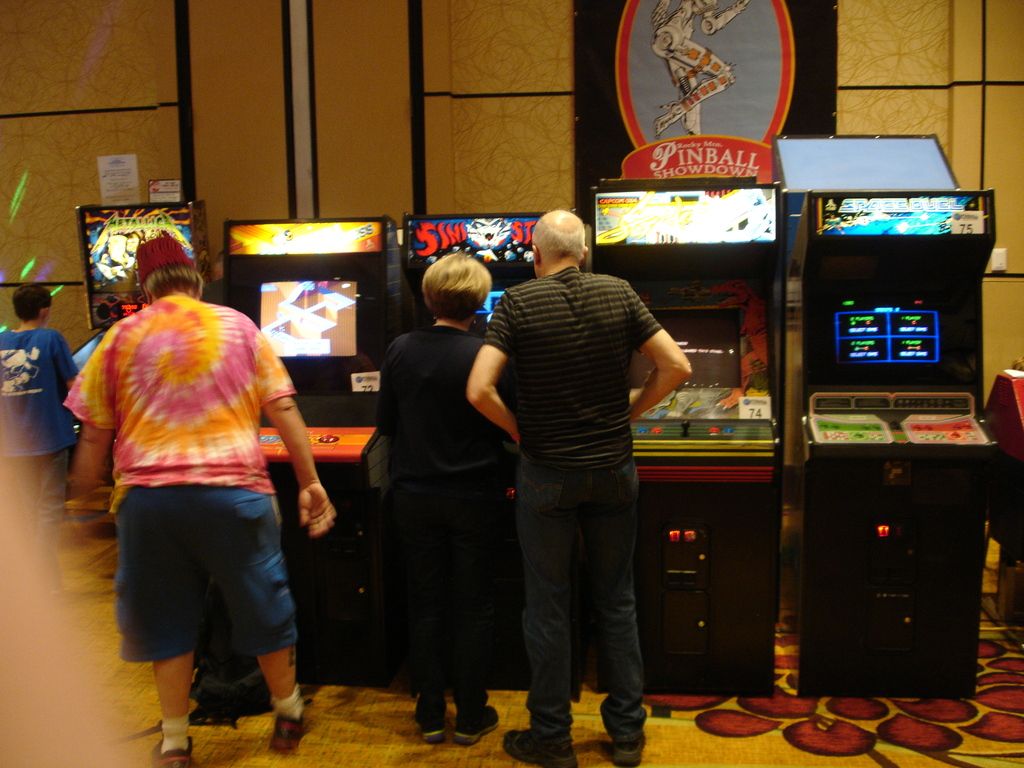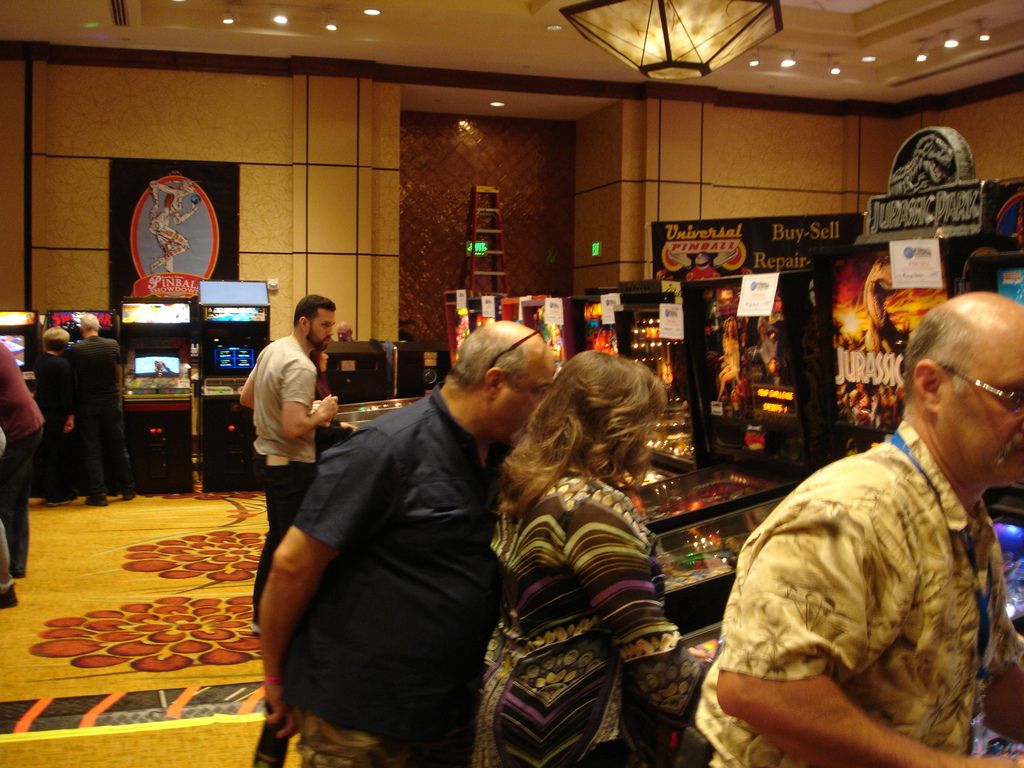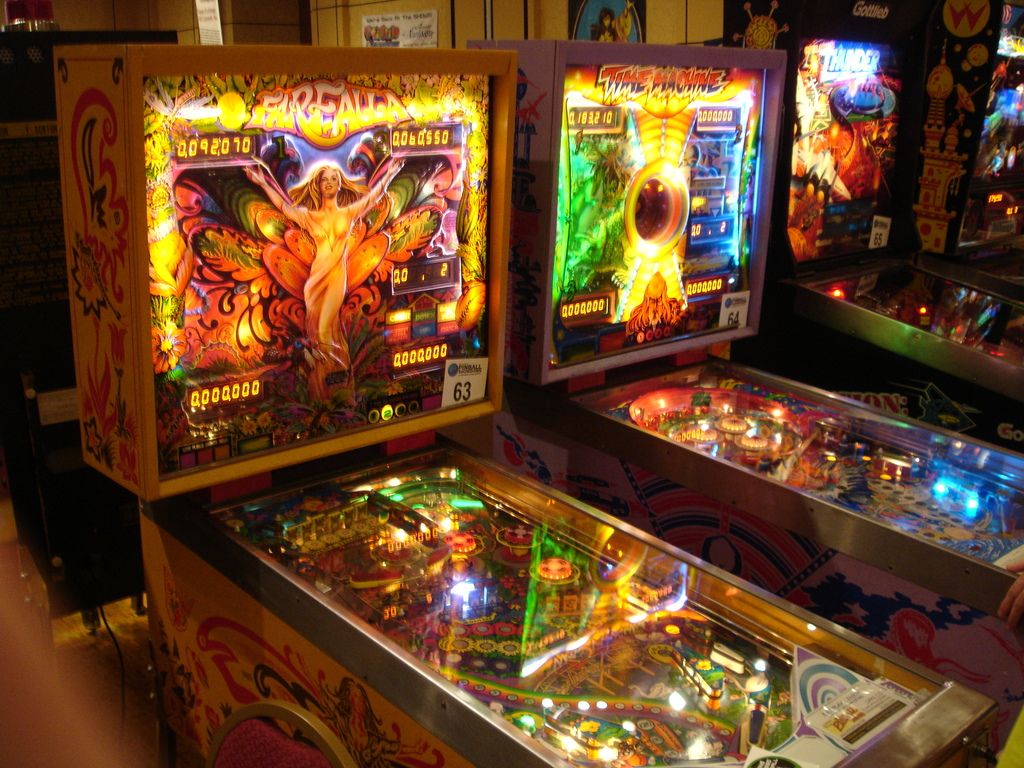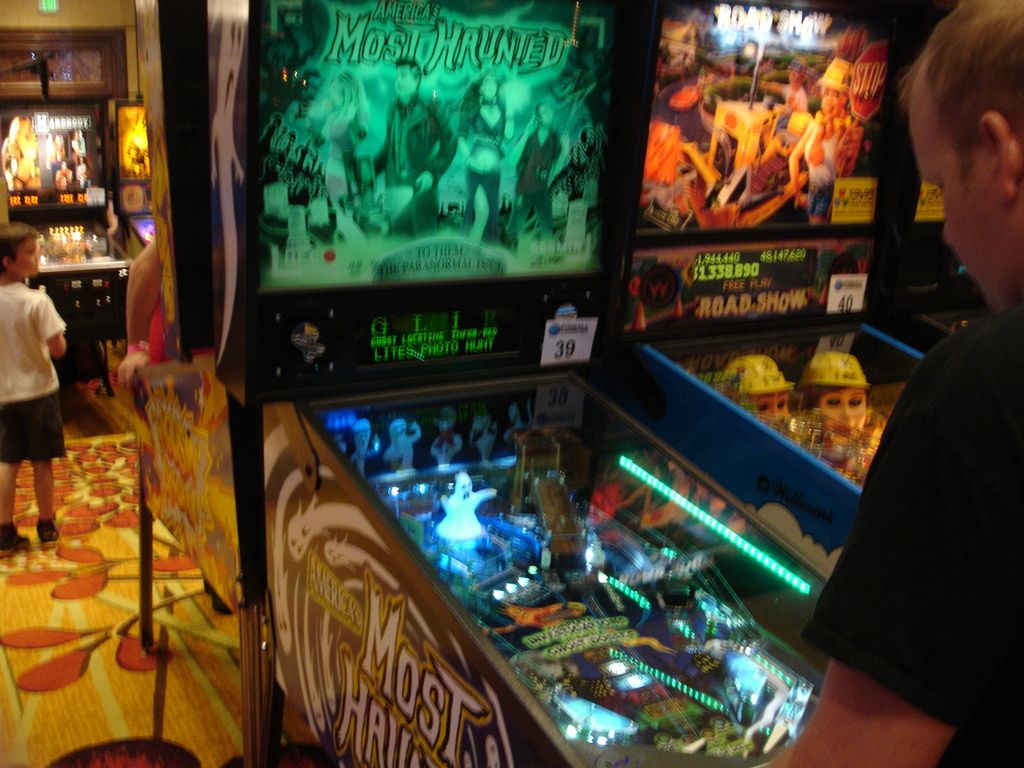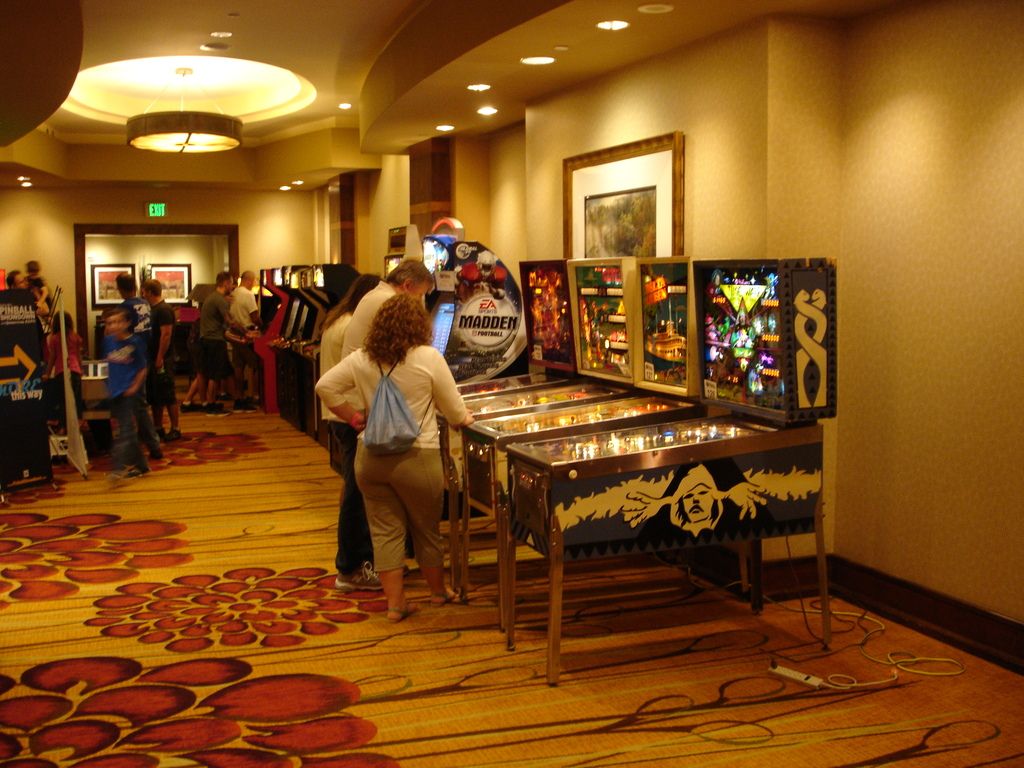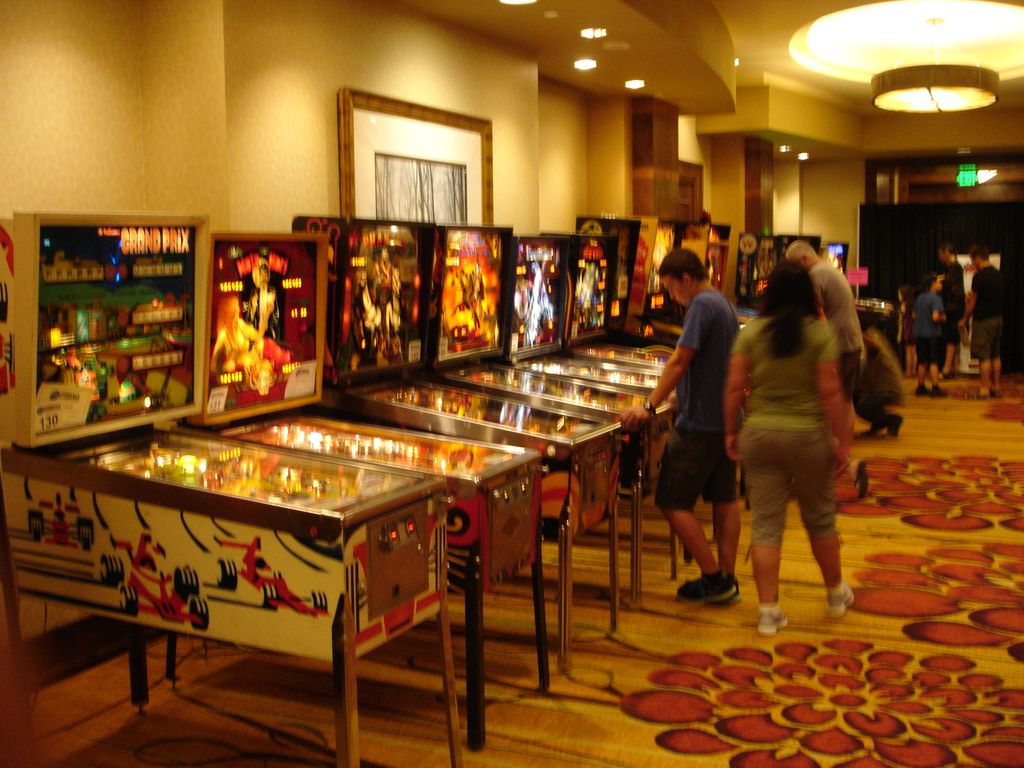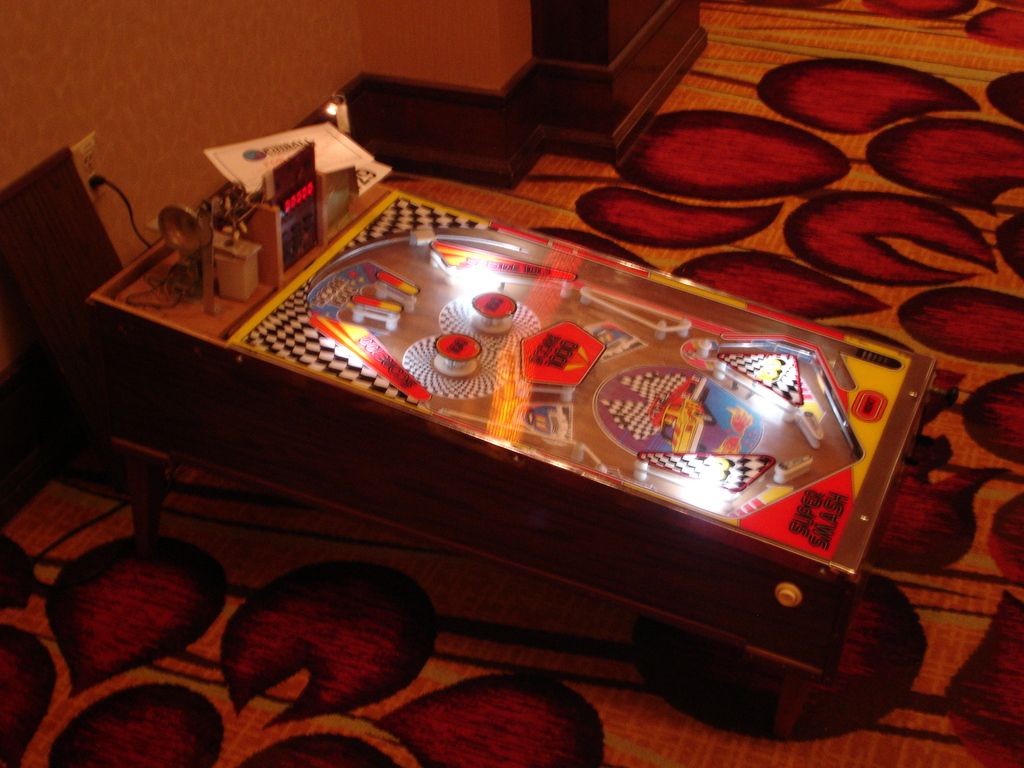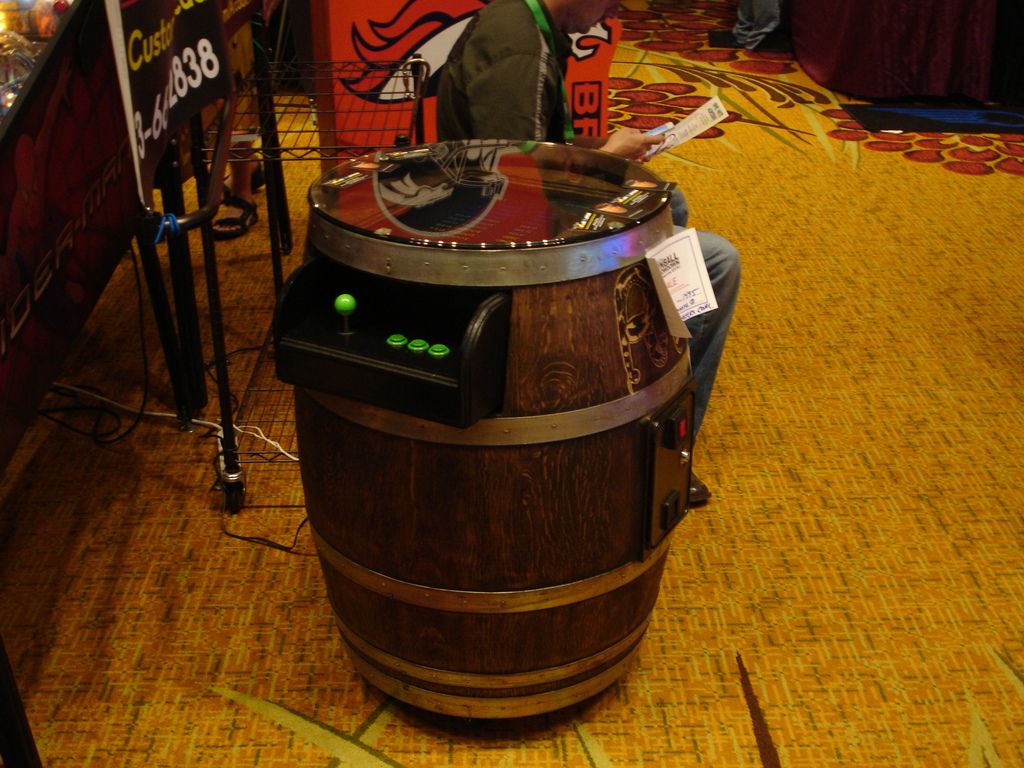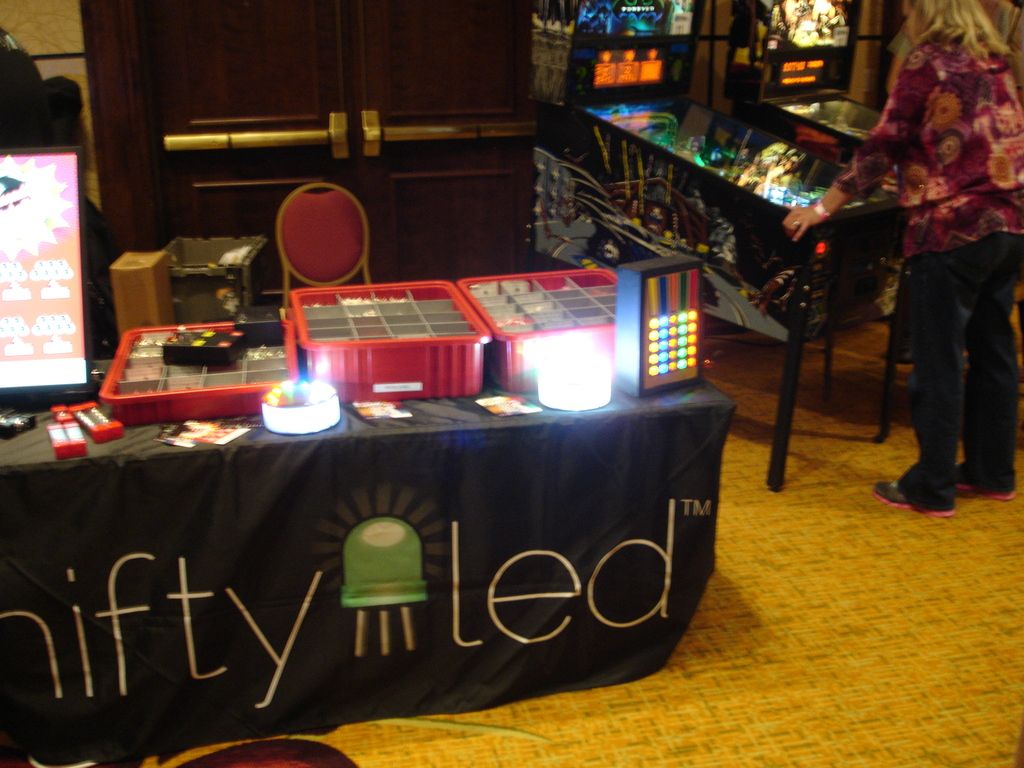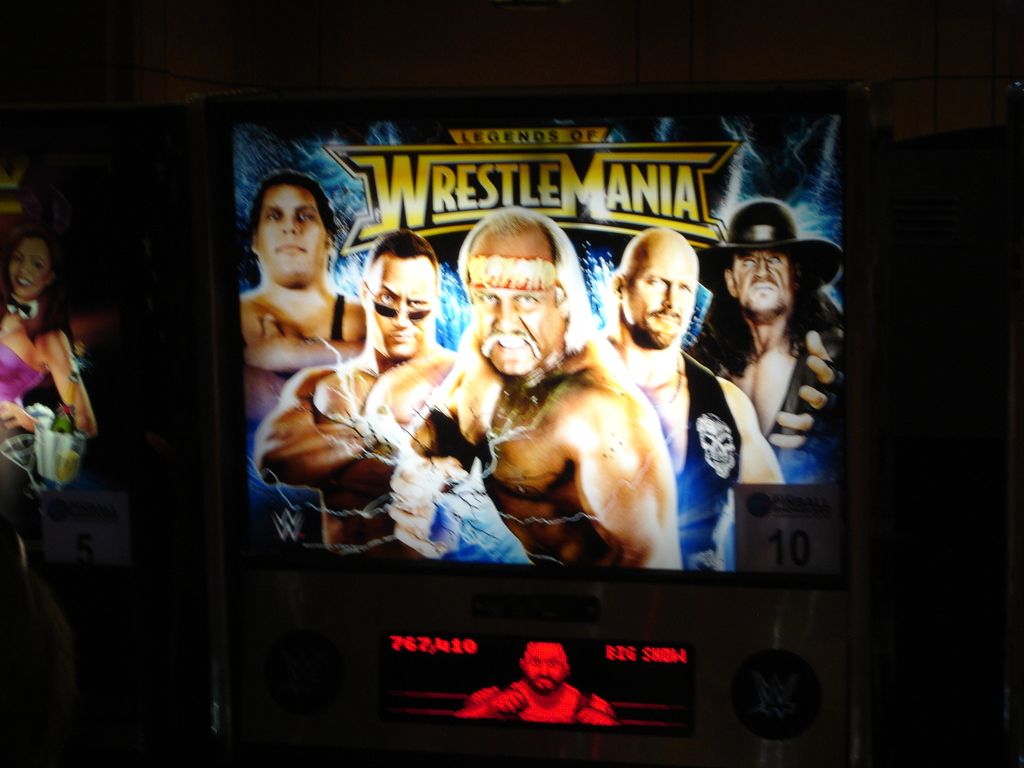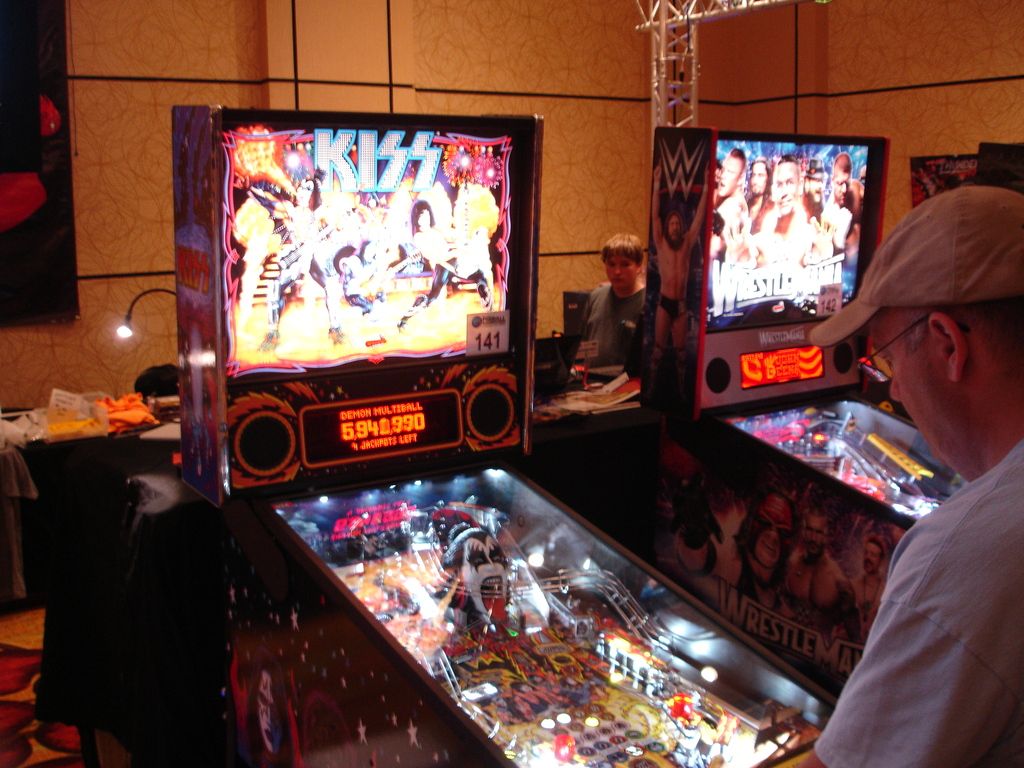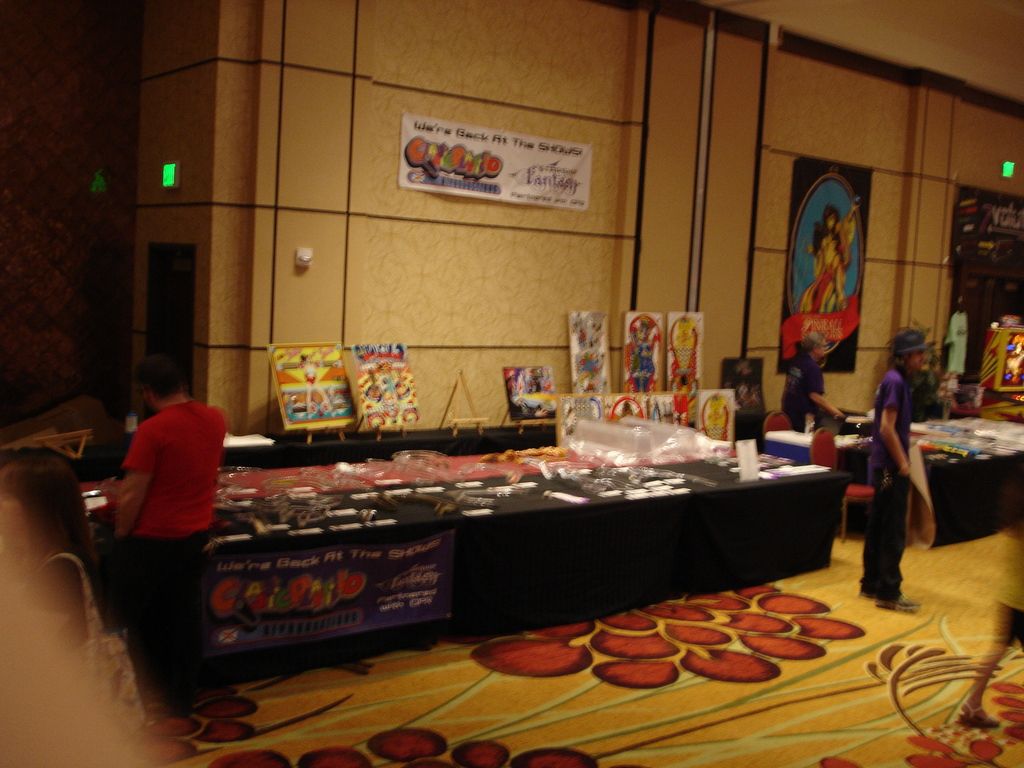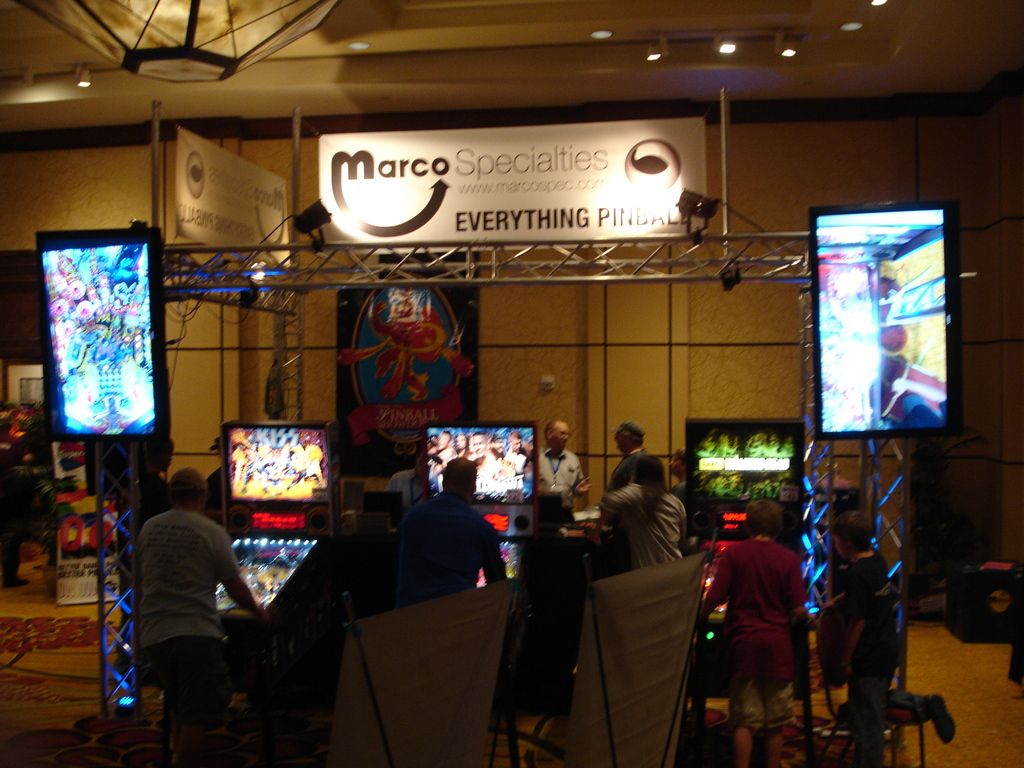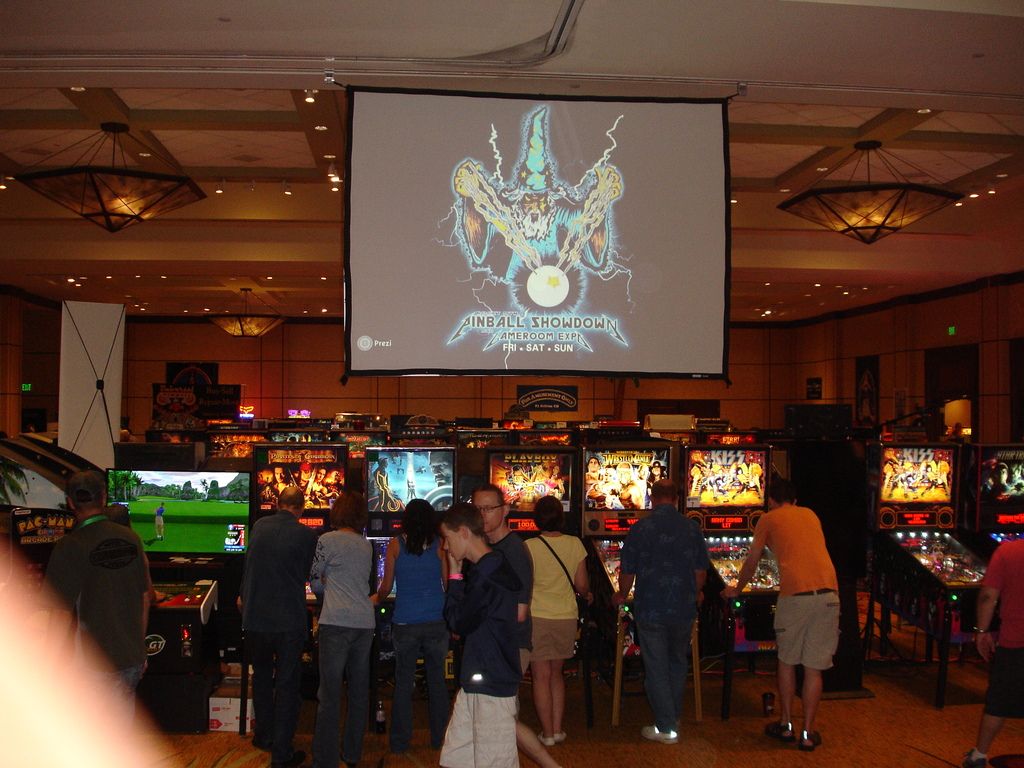I don't want to look like I'm picking apart your post, but it's just easier to reply to certain things specifically. So don't take it the wrong way, it's all just a fascinating discussion and back-and-forth 
I think maybe there's another way for Stern to flesh out their rules so that things aren't so hard to grasp but still retain their depth. Maybe an A4-sized how-to-play card is in order For what it's worth, I think Ripley's does a great job of explaining what has to be done to progress and also contain depth without being overbearing.
For what it's worth, I think Ripley's does a great job of explaining what has to be done to progress and also contain depth without being overbearing.
As for WOZ, I do enjoy it somewhat but I still don't know what I'm doing with it majority of the time. I haven't even really played it that much either. Aside from my friend who has one (that I rarely play anyway) I've hit the game up *maybe* 30 times in total (and most of those where while I was in the US and at Expo here in Australia).
Or maybe there's something in displaying the how-to-play stuff on the DMD after pushing the start button that directs people on what to do. Have the DMD show instructions (that could be cancelled by the flippers) with co-ordinated flashing inserts so there's less (or no) confusion once the first ball is ready to be launched. Not unlike the instructions when looking at tables on Pinball Arcade. Instructions need to be shoved down people's throats, just like they are for most video-based arcade games. Look at Daytona with the view-change buttons or the ticket-based kids games. Maybe even with the new system, there's storage for narrated instructions with scripted insert flashing. Having Gene Simmons say something like "Hit my head a bunch of times to start multiball" or "Shoot the ball towards this ramp to rack up the points!" and flash an arrow to said targets could go a REALLY long way. I'm surprised it isn't done already.
 But like I said earlier, I think the depth of the games is well received by pinheads but not necessarily by people who might play pinball once every few weeks if they see a machine in a pub. Something needs to be done to cater to them, otherwise the market which manufacturers are targeting will remain static.
But like I said earlier, I think the depth of the games is well received by pinheads but not necessarily by people who might play pinball once every few weeks if they see a machine in a pub. Something needs to be done to cater to them, otherwise the market which manufacturers are targeting will remain static.
I might go on record to say as far as newer Stern games go, I actually quite like the layout and approach to depth in Metallica (versus some of the other Stern titles). Inserts can be a little confusing but aren't as bad as others, and if I had to describe how to play it to anyone it would be pretty straightforward. I think that's the one machine they have it closest to being right on, despite me still preferring the original code to the new one (shhhh ). If only there could be a way to have both basic code and deep code in the same software (and maybe toggled via the service menu or something). There's good simple and bad simple, and I think they had it right with the simplicity of MET (compared to how basic other early software releases are, like TWD and WWE).
). If only there could be a way to have both basic code and deep code in the same software (and maybe toggled via the service menu or something). There's good simple and bad simple, and I think they had it right with the simplicity of MET (compared to how basic other early software releases are, like TWD and WWE).
They also need to look at some of their licenses, too. Roger Sharpe worked wonders with the Lebowski license, but despite Stern's experience we still see (by their coders' own admission) license fuckups like with TWD. At least KISS is a step in the right direction, with solid artwork and a well tied-in theme.
I don't mind Metallica or AC/DC, but I don't like how it's impossible to know how each of the modes work or how to progress through each of them. It's easier for Metallica, but for AC/DC I didn't even know that the three different multiballs were associated with ramps, targets and loops respectively (or whatever) until very recently. Musical notes flash, but I have no idea why. I guess some of it is in the design as well, where for a while now inserts have had little more than pictures on them if anything at all.While I agree that the simplicity surrounding TBL is nice, I do NOT agree with your statement on that's how pinball SHOULD be. I respect your opinion for you and your enjoyment of the hobby, but what YOU like is not what's best for the industry. Proof of that is in the way games are selling right now. TWD just received a code update that added a lot of depth and fleshing out to the existing code. That's what people wanted. Nobody was really "in love" with the skeleton rule set that Stern had in place. Personally, I love a deep and involved rule set that also gives you small objects to play for (MET is a fantastic example of this). Do you even like MET or AC/DC? I imagine you hate WOZ with everything in your soul, haha.
I think maybe there's another way for Stern to flesh out their rules so that things aren't so hard to grasp but still retain their depth. Maybe an A4-sized how-to-play card is in order
As for WOZ, I do enjoy it somewhat but I still don't know what I'm doing with it majority of the time. I haven't even really played it that much either. Aside from my friend who has one (that I rarely play anyway) I've hit the game up *maybe* 30 times in total (and most of those where while I was in the US and at Expo here in Australia).
See, I think it's close-minded to think newcomers can easily grasp complex games. For every Lyman that programs depth and longevity into a title post-release, there should be a Steve Ritchie (who by his own admission is not a great player) continuing to contribute so the regular/casual player doesn't get overwhelmed in the code development process. The amount of times I see people walk up to machines in arcades and walk away without having progressed anything is kind of astounding.Quite frankly, I'm surprised with your more recent posts on pinball and the strides that have been made in the industry these past few years. It's OK to prefer older B/W titles, but it's silly to write off these deeper, newer games. And (no offense meant by this, despite how it sounds), your general attitude towards newer games is a bit elitist and comes off as closed minded.
Or maybe there's something in displaying the how-to-play stuff on the DMD after pushing the start button that directs people on what to do. Have the DMD show instructions (that could be cancelled by the flippers) with co-ordinated flashing inserts so there's less (or no) confusion once the first ball is ready to be launched. Not unlike the instructions when looking at tables on Pinball Arcade. Instructions need to be shoved down people's throats, just like they are for most video-based arcade games. Look at Daytona with the view-change buttons or the ticket-based kids games. Maybe even with the new system, there's storage for narrated instructions with scripted insert flashing. Having Gene Simmons say something like "Hit my head a bunch of times to start multiball" or "Shoot the ball towards this ramp to rack up the points!" and flash an arrow to said targets could go a REALLY long way. I'm surprised it isn't done already.
The second Spooky game was going to be a throwback to mid-80s Williams titles with it's layout and simplicity. I'm still bummed it's been pushed backI feel like newer Stern, JJP and Spooky games are amazing advancements to the hobby. MET is a deep game, but it's also a very simple game to approach. I can't comment much on AC/DC, but there's a reason it's considered one of the best modern Stern games to date. Sure, some games don't resonate with everyone (WOZ is one of those), but if you spend time digging around various forums and blogs, it's clear that the care put into rules and complexity is very welcome and well received.
I might go on record to say as far as newer Stern games go, I actually quite like the layout and approach to depth in Metallica (versus some of the other Stern titles). Inserts can be a little confusing but aren't as bad as others, and if I had to describe how to play it to anyone it would be pretty straightforward. I think that's the one machine they have it closest to being right on, despite me still preferring the original code to the new one (shhhh
I would be happy with them, but there's literally maybe one 90s machine on location in Melbourne to every 20 Sterns. I'd even say that's stretch.On that same note, if you're the kind of person who doesn't like newer games, then you stick with the older B/W titles and be happy with it. It sounds like that's where you are. As I said - I'm shocked that you're not more receptive to some of these amazing recent titles.
I think the biggest problem around here (and it's probably a big influence on why I think the way I do) is that it's impossible to find anything buy Sterns around here. Pinball is in a shit state right now in Australia (though better than, say, 10 years ago) and all location pinball is Stern. There's no joy in me travelling somewhere just to play another Metallica or TWD or AC/DC. I imagine it's a good deal better in the US where there's probably a 50/50 chance that if a location has a machine it will either be a Stern or a not-Stern. Here it's maybe 95/5.I'll take a step back and say that I STARTED this hobby preferring newer Stern games, but I do love older titles as I've grown into things. That being said, if someone wants to try and get into pinball, I don't immediately say, "Play Twilight Zone/Monster Bash/TotAN/etc." I'm going to show them a modern Stern game (Spiderman, MET, TWD, KISS). I think it's a great way to show people that pinball is still a thing (and getting more popular). Stern games also tend to feel really good. I know you have a major issue with the way Stern games feel, but new people know no different. Older games are amazing, yes - but they aren't the only thing that pinball has to offer. I would say that if someone ENJOYS pinball, that's when I show them the older titles. I think TBL is going to be an amazing addition to the pinball repertoire, but I will put money on the fact that we aren't going to see a shift in rules because of it.
Not surprised. They're onto a good thing (at least from a business perspective, even if I don't agree with how things are done on a development side) so there's no need for them to change. Hell, the factory move/upgrade is a sign of that. A little surprised about their attitude to competition though, but I suppose they're in the position WMS were back in the 80s/90s and the others are in the position Sega/DE were in back then. Fascinating to see the shoe on the other foot, if nothing else.And I will say, based off of a few things I have learned in private conversation recently, Stern gives a total of zero fucks about what other people are doing in this hobby. If they had it their way, they would put JJP, Spooky, Dutch Pinball and anyone else interested in making pins in a furnace and burn them up. I promise you that.
And I yours <3I want to say again, I don't mean this as an attack on you Shaneus. I think your opinion and experience in pinball as a hobby and as a "sport" is just as valid as any other player out there.
Yeah, I agree. Nate's usually pretty good with being straightforward in his reviews, but it did come off as a bit of a circlejerk. Some interesting things in there, but it wasn't much more than a slightly more detailed, thorough journey through Gary's typical "easy to learn, hard to master" soundbites.Unrelated, anyone who IS into physical pinball should listen to the C2C interview with Jody and Jared at Stern. It's an absolute PR bullshit fest. I do love Stern games, but Stern as a company? See my above paragraph...
They also need to look at some of their licenses, too. Roger Sharpe worked wonders with the Lebowski license, but despite Stern's experience we still see (by their coders' own admission) license fuckups like with TWD. At least KISS is a step in the right direction, with solid artwork and a well tied-in theme.


